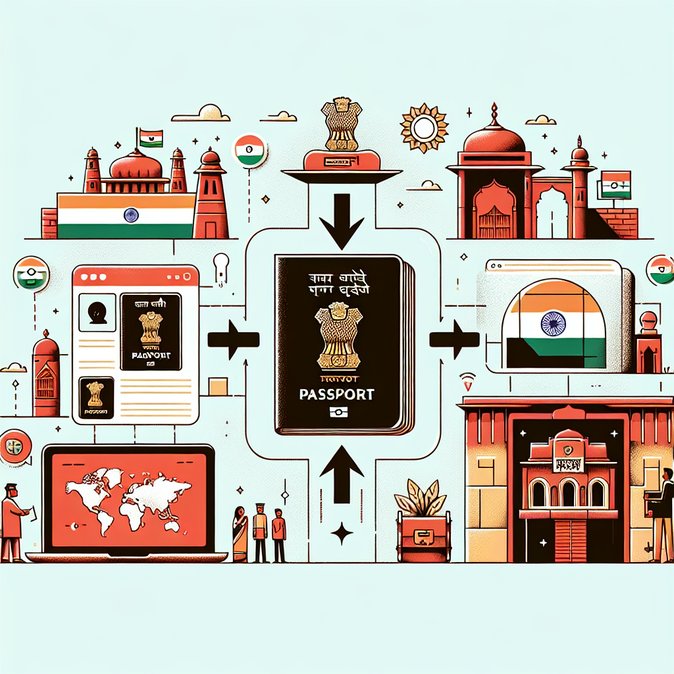
In a significant digital upgrade to India’s consular services overseas, the Embassy of India in Abu Dhabi and the Consulate-General in Dubai have begun issuing next-generation, chip-enabled e-passports to all applicants from 28 October 2025. The new travel documents form the centre-piece of “Global Passport Seva Programme 2.0” (GPSP 2.0), the second-generation revamp of India’s decade-old Passport Seva initiative.
Each e-passport embeds a secure RFID chip that stores the holder’s biographic and biometric data in line with ICAO standards. Border-control systems can now read the passport in seconds, sharply reducing queue times and making forgery far harder. The booklet design has also been refreshed with advanced holograms, UV-printing and laser engraving.
Indian expatriates in the UAE—estimated at 3.5 million—must now apply exclusively through a new online portal that supports end-to-end digital submission of photographs, signatures and supporting documents. Older machine-readable passports remain valid until expiry, but community associations are encouraging early upgrades to benefit from faster immigration lanes at Dubai, Abu Dhabi and Sharjah airports.
The move is part of India’s wider plan to roll out e-passports at all missions by March 2026 and domestically by FY 2027. For business travellers, the faster e-gates in Gulf hubs translate into shorter transit windows and fewer document checks. Corporates with large intra-GCC movement are updating their travel policies and traveller-profiles in global distribution systems to reflect the new document type.
Travel-risk managers note that chip-enabled Indian passports should also qualify for automated lanes already operational in Singapore, the EU and the United States, although reciprocity agreements will still determine access. For mobility and immigration teams, the upgrade underlines India’s commitment to high-integrity travel documents—an important factor when host governments assess visa-waiver or trusted-traveller proposals.
Each e-passport embeds a secure RFID chip that stores the holder’s biographic and biometric data in line with ICAO standards. Border-control systems can now read the passport in seconds, sharply reducing queue times and making forgery far harder. The booklet design has also been refreshed with advanced holograms, UV-printing and laser engraving.
Indian expatriates in the UAE—estimated at 3.5 million—must now apply exclusively through a new online portal that supports end-to-end digital submission of photographs, signatures and supporting documents. Older machine-readable passports remain valid until expiry, but community associations are encouraging early upgrades to benefit from faster immigration lanes at Dubai, Abu Dhabi and Sharjah airports.
The move is part of India’s wider plan to roll out e-passports at all missions by March 2026 and domestically by FY 2027. For business travellers, the faster e-gates in Gulf hubs translate into shorter transit windows and fewer document checks. Corporates with large intra-GCC movement are updating their travel policies and traveller-profiles in global distribution systems to reflect the new document type.
Travel-risk managers note that chip-enabled Indian passports should also qualify for automated lanes already operational in Singapore, the EU and the United States, although reciprocity agreements will still determine access. For mobility and immigration teams, the upgrade underlines India’s commitment to high-integrity travel documents—an important factor when host governments assess visa-waiver or trusted-traveller proposals.










